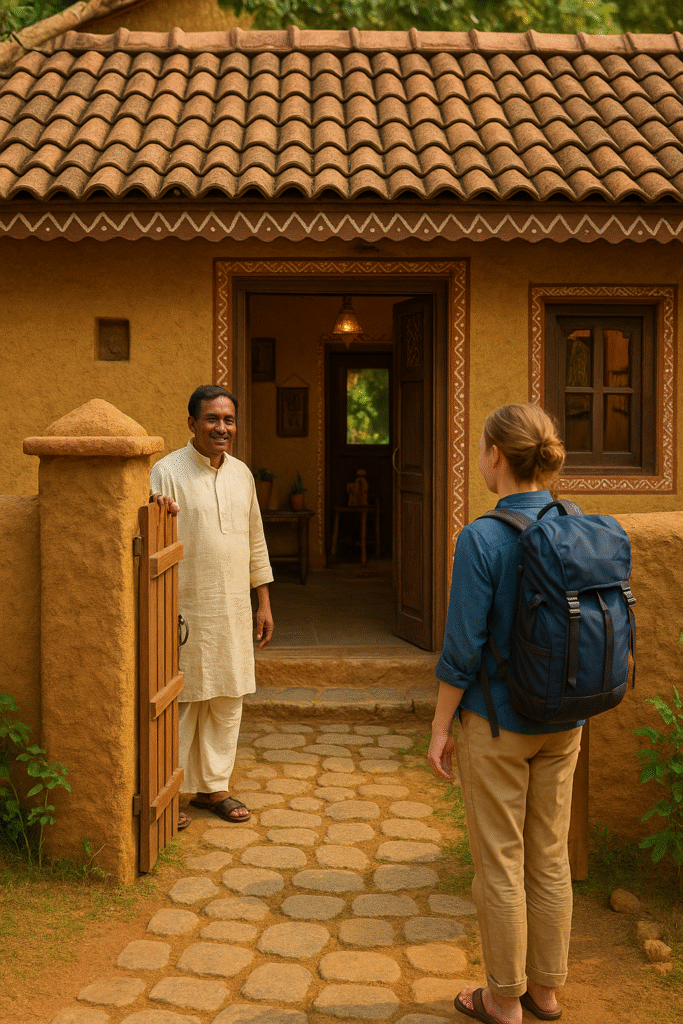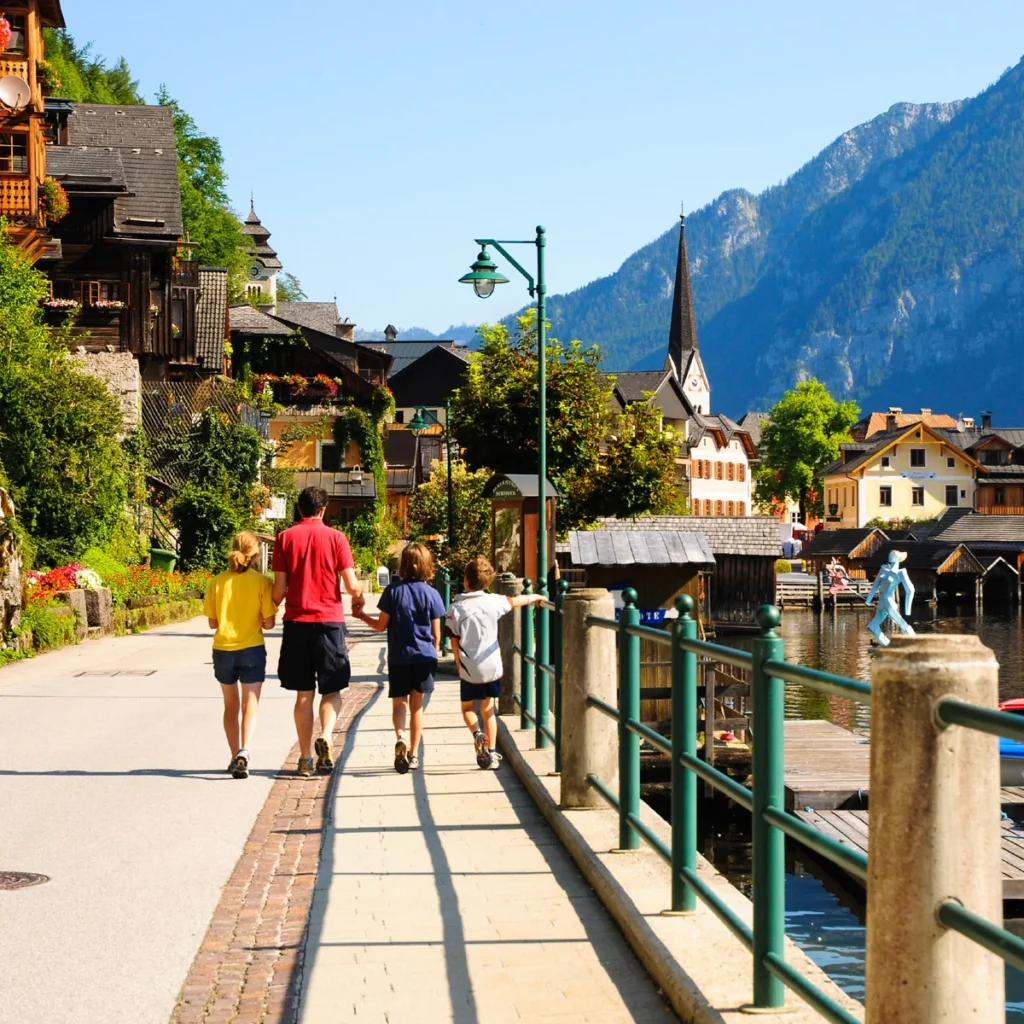Have you ever wondered what life was like for your great-grandparents? Or what untold stories your last name might reveal? Traveling to your roots is more than just another trip — it’s a deeply personal journey into your identity, history, and heritage. But in today’s fast-paced, globalized world, it’s crucial to travel to your roots responsibly.
That means approaching every step with cultural sensitivity, environmental awareness, and a sincere respect for local communities. Whether you’re visiting your ancestral village or tracing your family tree across continents, practicing ethical travel to ancestral lands is essential. Embracing sustainable cultural tourism and choosing genealogy-based travel options not only enriches your own experience but also preserves these meaningful destinations for future generations.
Let’s explore seven powerful ways to ensure your heritage journey is as respectful as it is unforgettable.
Table of Contents
1. Start with Ethical Genealogy Research

Your journey of genealogy-based travel begins long before stepping on a plane. Start with reputable platforms like Ancestry.com or MyHeritage to trace your family history through DNA tests and archives. But remember, responsible travel starts with responsible research.
Before contacting long-lost relatives or visiting ancestral homes, understand and respect privacy boundaries. Ethical travel to ancestral lands includes acknowledging that your journey involves real people and real histories — not just a travel itinerary.
Tip: Validate your findings through multiple sources — census records, oral stories from elders, historical documents. These often hold truths digital tools can miss.
2. Respect Local Traditions and Cultures

When you arrive at a place your ancestors once called home, take the time to understand the local way of life. Learn simple greetings in the regional language. Observe local customs. Always ask permission before photographing people or sacred spaces.
Travel to your roots responsibly means treating today’s residents — your hosts — with the same respect you’d expect in your own home. You’re visiting someone else’s present, not just your family’s past.
This is the foundation of ethical travel to ancestral lands — empathy, humility, and genuine curiosity without intrusion.
3. Choose Local Guides and Stay in Heritage Homes

Skip the commercial tourist trail and instead support the local economy. Stay in heritage homes, guesthouses, or eco-stays run by local families. These settings often give you a richer perspective on how life used to be — and how it still is.
Hiring local guides not only enhances your experience but contributes to sustainable cultural tourism. These guides can offer insights rooted in generations of lived knowledge — far more valuable than a scripted museum tour.
Explore resources like Tourism Cares for finding ethical tourism partners.
4. Participate in Community Life, Don’t Disrupt It

Rather than observing from a distance, consider respectfully participating in community activities if invited — a local festival, a religious ceremony, or a family gathering.
Avoid turning your heritage journey into a spectacle. Responsible genealogy-based travel requires presence, not performance. You’re not collecting content; you’re cultivating connection.
Be mindful of how you document your trip — especially if posting on social media. Your story is personal, but it’s also intertwined with a living community.
5. Travel Light — Emotionally and Environmentally

The best way to travel to your roots responsibly is to minimize your footprint. Carry only what you need. Avoid plastic. Use biodegradable products. Offset your carbon emissions through services like Carbonfund.org.
Your ancestors likely lived sustainably by necessity. Honor that legacy by being environmentally conscious on your journey. Sustainable cultural tourism is not a trend — it’s a responsibility.
Emotionally, travel with an open heart, not expectations. You may discover unexpected truths — not all of them comforting. Be ready to process, not project.
6. Be Prepared for Emotional Discoveries

Tracing your roots can uncover powerful stories — some uplifting, others difficult. You might find the house your great-grandmother left behind during a migration. Or meet cousins you didn’t know existed. You may even uncover loss, exile, or resilience.
These are the moments that make genealogy-based travel transformative. Keep a journal. Sit quietly in reflection. Let your emotions surface — because they’re part of your heritage too.
Visiting sites tied to historical trauma? Approach them with the same reverence as a memorial, not a tourist attraction. This is the core of ethical travel to ancestral lands.
7. Leave a Positive Impact Behind

As you close the loop between past and present, think about how you can give back. Contribute to a local archive with family photos or oral history. Support a community project. Sponsor a local artisan. Even a thank-you note to your host can make a difference.
When you travel to your roots responsibly, you don’t just find yourself — you become a living bridge between generations. This type of travel is not about nostalgia — it’s about nurturing the future with the wisdom of the past.
For more guidance on ethical travel, refer to UNESCO’s Cultural Tourism Guidelines.
How This Journey Inspires Future Generations
This isn’t just your story — it’s your legacy.
When you travel to your roots responsibly, you’re not only uncovering your family’s past, but also creating a meaningful path forward. Bringing your children, siblings, or relatives along on a genealogy-based travel experience can spark pride, strengthen family bonds, and ignite a lifelong curiosity about heritage.
You’re passing down more than photographs. You’re passing down values, traditions, languages, and a sense of belonging. This kind of ethical travel to ancestral lands doesn’t just document the past — it makes it come alive.
And as each generation reconnects with where they come from, they help preserve culture, community, and identity in powerful, lasting ways. That’s the true beauty of sustainable cultural tourism — it protects not just historic sites, but the living memory they represent.
So when you step foot on ancestral soil, remember: you’re not just walking in your ancestors’ footsteps — you’re paving the way for future generations to do the same, responsibly and respectfully.
Your Next Steps: How to Begin Your Heritage Journey
Ready to go beyond the map and step into your story? Here are five meaningful, actionable steps to help you travel to your roots responsibly and begin your own genealogy-based travel adventure:
1. Take a Trusted DNA Test
Start by discovering your genetic heritage through platforms like AncestryDNA or MyHeritage DNA. These services can reveal ancestral connections and guide you toward places tied to your lineage.
Want to build your trip around DNA results? Explore this ancestry-based travel guide for ideas and tools.
2. Build Your Family Tree
Use free resources like FamilySearch to trace your lineage. Combine documents, historical records, and family stories for a rich, detailed foundation. It’s the first step toward ethical travel to ancestral lands.
3. Talk to Your Elders
Conversations with grandparents, great-aunts, and family elders often uncover stories, names, and locations that aren’t found in online databases. These personal details breathe life into your plans.
Curious how others connect history and culture? Read about hidden foodie labs and local fermenteries for travel ideas grounded in local tradition and flavor.
4. Choose Ethical and Local Travel Providers
When booking, look for guides and agencies specializing in sustainable cultural tourism. These providers focus on authentic, respectful experiences while supporting local communities.
Looking to blend culture and storytelling? Discover film tour towns in the USA that make you feel like you’ve stepped into your ancestors’ past lives.
5. Travel with Purpose, Not Just a Passport
True ancestral travel isn’t about “checking places off a list” — it’s about showing up with humility and intention. Prioritize cultural respect, eco-conscious choices, and meaningful interactions throughout your journey. This is the essence of how to travel to your roots responsibly.our understanding of self.
What is the best way to travel to your roots responsibly?
The best way to travel to your roots responsibly is by combining genealogical research with ethical travel practices. Use verified DNA services, research local customs, choose sustainable tour operators, and support local communities. Always approach ancestral locations with respect and a desire to learn, not just observe.
How do I plan a genealogy-based travel trip?
Start by tracing your family tree using platforms like Ancestry, MyHeritage, or FamilySearch. Once you identify specific regions or towns, research their history, customs, and local tourism guidelines. Look for heritage tour companies that focus on cultural authenticity and sustainable cultural tourism.
Can a DNA test help me plan ancestral travel?
Yes, DNA tests can help you identify your ethnic origins and ancestral regions. Many services like AncestryDNA and 23andMe offer regional breakdowns and migration maps, which you can use to plan meaningful visits to your ancestral lands.
What is ethical travel to ancestral lands?
Ethical travel to ancestral lands means visiting places connected to your heritage with mindfulness and respect. It includes learning about local traditions, avoiding exploitative tourism, supporting local businesses, and leaving a positive cultural and environmental impact.
Are there tours or companies that specialize in heritage or root travel?
Yes, several travel companies specialize in genealogy-based travel and heritage tourism. These include providers like Ancestral Journeys, My China Roots, and Context Travel. They offer guided trips tailored to your family’s historical roots, often with local experts and historians.
Conclusion: This Is More Than Just a Trip
Root travel isn’t about ticking off places on a map. It’s about peeling back the layers of who you are — understanding where you come from and what those origins truly mean. It’s a journey of identity, reflection, and belonging.
But with that deep personal experience comes a shared responsibility. When you travel to your roots responsibly, you’re not just visiting a location — you’re entering someone’s living history. That means being mindful of local cultures, engaging with empathy, and ensuring that your presence benefits, rather than disrupts, the communities you visit.
Whether you’re exploring old villages, connecting with long-lost relatives, or walking in the footsteps of your ancestors, let your trip reflect the values of ethical travel to ancestral lands. Prioritize sustainable cultural tourism by choosing local experiences, reducing your environmental footprint, and giving back in meaningful ways.
Root journeys powered by genealogy-based travel can be powerful, emotional, and even life-changing — but they must be approached with care.
So the next time you feel the call of your ancestry, remember: the goal isn’t just to arrive. It’s to listen, to learn, to honor, and to return with something far more lasting than souvenirs — a deeper sense of who you are and where you truly belong.




